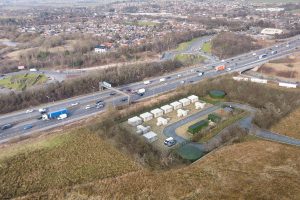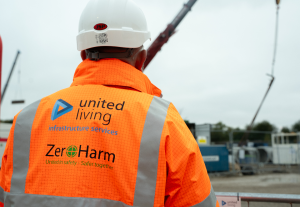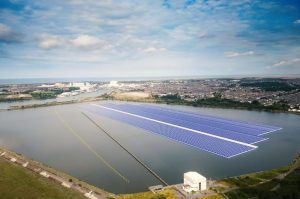TalkTalk harnesses router data to help roll-out of green heating

Salford-based telecoms company, TalkTalk, is using its technology to help households cut their heating emissions, and save hundreds of pounds in the process.
It can do this by harnessing data from its broadband routers, thanks to an innovative new project.
In a Government-backed trial, TalkTalk, along with the University of Salford, Homely, EnAPPsys, Gen Game and lead organisation Chameleon Technology (UK), will combine data from broadband routers and smart meters to give people a complete picture of their household heating habits.
As a result, it’s hoped those who opt in will, for the first time, be able to easily determine whether a low-carbon heat pump is right for them, enabling households to significantly reduce their heating emissions while saving hundreds of pounds on costly and time-consuming property surveys.
On average, these surveys cost around £170 – but can be as much as £350.
Unlike standard boilers which generate warmth by burning fossil fuels to heat water, heat pumps use electricity to heat air. And, since heat pumps use the same technology as air conditioners, they can also cool your home.
As well as being better for the environment, this technology also makes them more efficient. Heat pump technology currently offers a carbon saving of up to 65% compared with a gas boiler, and has the potential to decrease a household’s carbon emissions by more than 23 tonnes of CO2 over 10 years.
TalkTalk’s involvement in the project is a first for UK broadband providers and underscores the company’s broader commitment to sustainability.
Adam Dunlop, CEO of TalkTalk Consumer, said: “I’m thrilled that TalkTalk is a part of this initiative, furthering our commitment to embedding sustainability into our operations.
“TalkTalk is no stranger to being at the forefront of innovative tech, so it’s fantastic to see our TalkTalk Wi-Fi Hub being utilised so creatively to promote sustainability. We’re proud to play a role in this fascinating collaboration that will benefit both consumers and the environment.”
David Farmer, of The University of Salford – Energy House Labs, said: “Installing air source heat pumps that are inefficient or difficult to control could damage consumer confidence and the delivery of a net zero housing stock. This project represents an important step in demonstrating the potential for data to improve the roll-out of domestic low and zero carbon technologies.”
TalkTalk has reduced its own operational carbon footprint by 94% over the past five years by introducing several new sustainability measures, such as powering its offices and data centres with 100% renewable electricity and encouraging customers to switch from standard broadband to full fibre – a more environmentally friendly technology.
TalkTalk’s near-term science-based targets were also recently approved by the Science Based Targets Initiative.
A closed trial of the initiative is under way.








